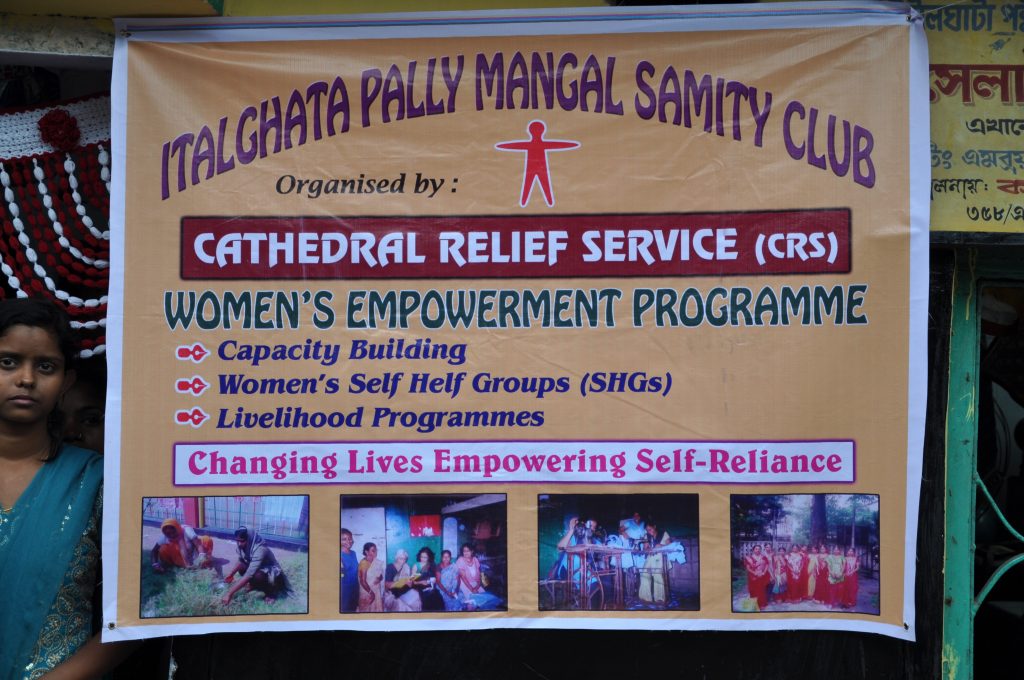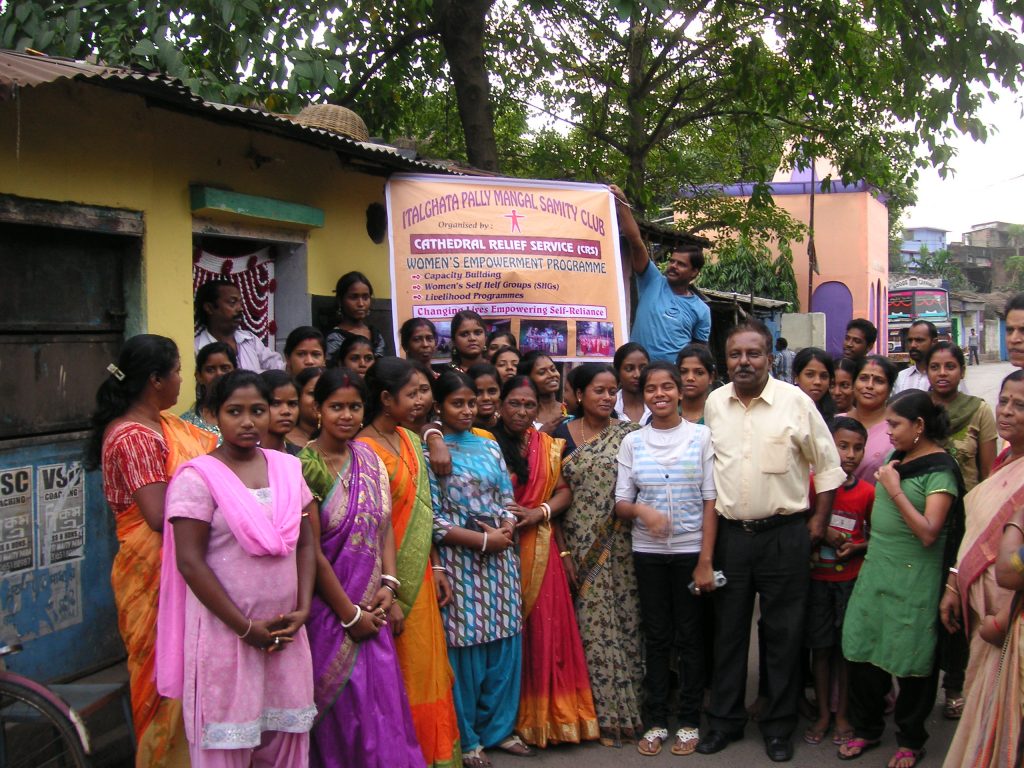About the area
Pally Mangal is a neighbourhood in the Tollygunge area of south Kolkata. Thousands of homes are packed tightly together around a network of narrow lanes. This stands in contrast to the many high-rise apartment blocks for the wealthier classes that have been built in the area in recent years.
The population of the area is about 30,000 (3,000 families), of which 20,000 are children. About 95 per cent of families are Hindu and the remainder Muslim. The community is a mixture of Bengalis and migrant labourers who have come to Kolkata from neighbouring states.
The new high rise apartment blocks have provided some employment opportunities for men as chauffeurs. Work is also available pulling rickshaws, running small businesses or day labouring. While work is available, some men are tempted to spend their earnings on gambling and alcohol. This puts added pressure on women to find additional income to support their families.
As illiteracy levels are high, domestic service offers the only option for many women, so they clean, cook and provide childcare for affluent families. Many young girls follow their mothers into this work at an early age. This occupation is low paid and domestic servants often suffer from mistreatment or exploitation at the hands of their employers.
About the local organisation and history of CRS involvement

Italghata Pally Mangal Samity was formed by a group of 30 local boys to work towards the improvement of their area. Their first step was to clean out the drinking dens and the boys received a lot of support from the local police in doing this. The group then approached some companies and managed to secure jobs for those families whose livelihoods came from the alcohol business.
In 1996, Joga, one of the CRS drivers, highlighted the problems facing the community and CRS decided to focus on empowerment initiatives for women. A programme was started offering courses in tailoring and embroidery and beautician training was added a decade later.
In 2005 an education programme was started to cater for the slum and street children. This was funded under the Government of West Bengal’s City Level Programme of Action for Street and Working Children (CLPOA) until that scheme ended in 2012 and the education programme had to close.
Current CRS programmes

The women’s empowerment programme offers training courses in tailoring, embroidery and beautician skills. Once they have completed their courses students are encouraged to form self-help groups, such as the Women’s Empowerment Group (WEG), and establish income generating activities. Some former students have joined CRS’s Nari Dana project and others have opened beauty parlours in their homes. Today about 400 families are supported through these initiatives which empower and enable women to seek better lives for themselves and their families.
CRS also supports this community with a health programme. Women and children receive iron supplements for iron deficiency anaemia. Awareness campaigns are held in the community to spread messages about good health and hygiene. Health camps are also held in collaboration with other agencies targeting particular health issues.
Success stories
“My situation at my in-laws’ home had become unbearable at the time I enrolled in the skill training course. I took both the tailoring and the beautician classes. I did well enough in the beautician class to find employment at the Institute of Hotel Management where I now teach. In my free time I also take orders for jute bags and other tailoring items. I have now managed to convince the local councilor to give a small space where I can display and sell my products. I have also enrolled in a correspondence course so I can get my school leaving certification. I feel like a new person and have earned the respect of my husband and his family.”
– Namita Ghosh, resident of Pally Mangal
“I am only 25 years old but I have not had an easy life since I got married. My husband is an alcoholic. I live with his parents who have mistreated me physically and been very cruel. My mother-in-law sometimes did not let me have any food. It got really bad and I had to go into hospital. I had been going to the women’s classes at the Pally Mangal centre. My classmates and teachers were so kind – they protested against my husband and in-laws and demanded that they treat me with dignity. Now I have completed the tailoring and beautician courses. I have three sewing machines and have opened a little beauty parlour. I hope that I can provide an education and better life for my two sons.”
– Asha Haldar, former student of Pally Mangal skills training centre
Support is always needed for training and educational materials at the Pally Mangal centre, including a teacher’s honorarium and the provision of a midday meal.
With many women and children suffering from iron deficiency anaemia, funds are also needed to support an intervention programme that will treat them and raise awareness about this condition.
